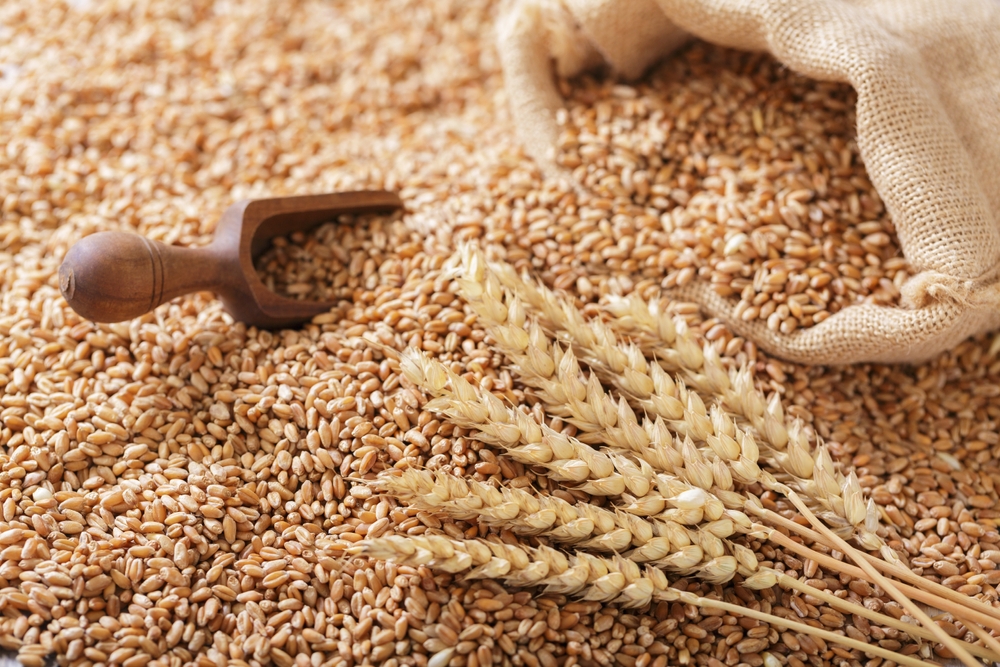Flaxseeds, sometimes known as linseeds, provide a host of nutritional benefits to humans. They are packed with essential omega-3 and omega-6 fatty acids and have anti-inflammatory properties that can ease joint pain and arthritis. But are they safe for dogs?
The answer is a resounding yes! Flaxseeds can be a great way to improve your dog’s health, and they are inexpensive and easy to prepare. As with all new foods, however, moderation is vital, and there are concerns with feeding flaxseed to your pup.
In this article, we’ll examine the health benefits of this amazing seed and the concerns you need to be aware of.
What Are Flaxseeds?
Flaxseeds are nutty-flavored seeds that come from the flowering Flax plant, Linum usitatissimum. Flax is one of the oldest cultivated plants, and its usage dates back almost 5,000 years! The plants have been commonly used throughout history to make fabrics and linen, and the seeds have been used to make linseed oil, which is used as a nutritional supplement and a wood-finishing oil. Flax fibers are two to three times stronger than cotton and are naturally smooth and straight.
Flaxseeds come in two distinct varieties: brown and yellow. Both have similar nutritional value, but the yellow seeds are most often used for culinary purposes. Due to their high nutritional value and low cost, flaxseeds have grown dramatically in popularity over the last few decades.

Benefits of Flaxseeds for Dogs
One of the biggest benefits for dogs is the essential omega-3 and omega-6 fatty acids that they contain. These are beneficial for your dog’s skin and coat, can help with skin conditions, assist in alleviating allergies, help kidney function, are great for joint health, boost cognitive function, and much more. Omega-3 fatty acids, also known as alpha-linolenic acid, contribute to optimal cell function, immune function, and overall well-being.
Flaxseeds contain antioxidants called lignans. These compounds can improve your dog’s immune function, fight inflammation, and even help prevent cardiovascular disease. The seeds are also loaded with fiber, which can aid in digestive function and treat diarrhea.
Do Flaxseeds Pose Any Risks?
Flaxseeds are a healthy, nutrition-packed food that is generally great for your dog’s overall health, but there are a few minor concerns to be aware of. Flax poisoning is possible if your dog ingests too much of the crushed seed or oil, but this is rare, and your dog would need to eat a very large amount to be adversely affected. As long as you only serve it occasionally, it is not something to worry about. Still, if your dog has managed to chew up your flax supplements or ingested a large number of raw seeds, keep an eye out for these signs:
- Nausea
- Diarrhea
- Vomiting
- Fatigue
- Rapid heart rate
- Confusion
If you notice these signs, it’s best to take your pup to the vet immediately.
If you need to speak with a vet but can’t get to one, head over to PangoVet. It’s an online service where you can talk to a vet online and get the personalized advice you need for your pet — all at an affordable price!
How Much Flax Should I Give My Dog?
As with most foods, the amount of flax to give your dog depends on their weight. Ground flaxseed is the most common and readily available, and it’s much easier to mix into your dog’s food than other forms. Whole flaxseeds will usually pass through your dog’s digestive system and negate any potential benefit, and flax oil can go rancid over time. It’s also a good idea to start small, give your dog half the recommended amount, and see how they react first to ensure there are no adverse reactions.
For small breeds, around ½ teaspoons a day is ideal, and you can then increase it to a full teaspoon. Medium-sized breeds can safely have up to 2 teaspoons, and large breeds can have 3–4 tablespoons per day. We recommend mixing the powder into their food to make it more palatable.
Remember, these doses are basic guidelines only, and it’s best to visit your vet first if you have any concerns.
Final Thoughts
Flaxseeds are perfectly safe for your dog and have health benefits, with a few potential side effects. Besides the potent ratio of omega fatty acids, flaxseeds can also aid in digestion and immune function and help fight inflammation. In the proper amounts, flaxseeds can be a great addition to your dog’s diet.
Related read:













